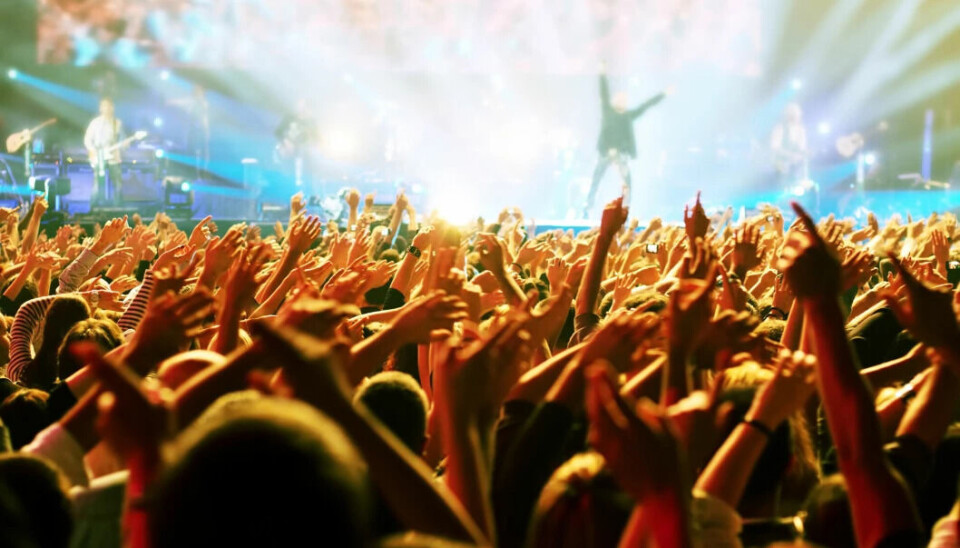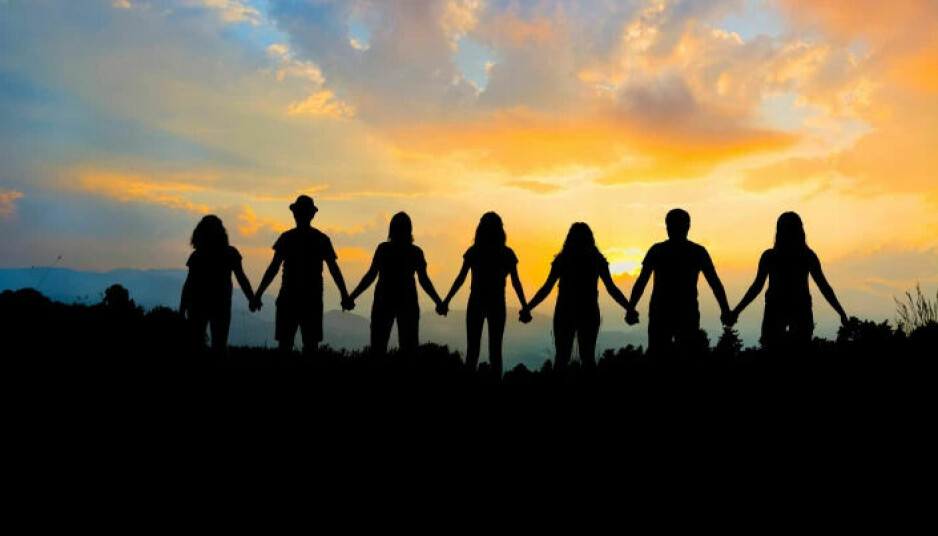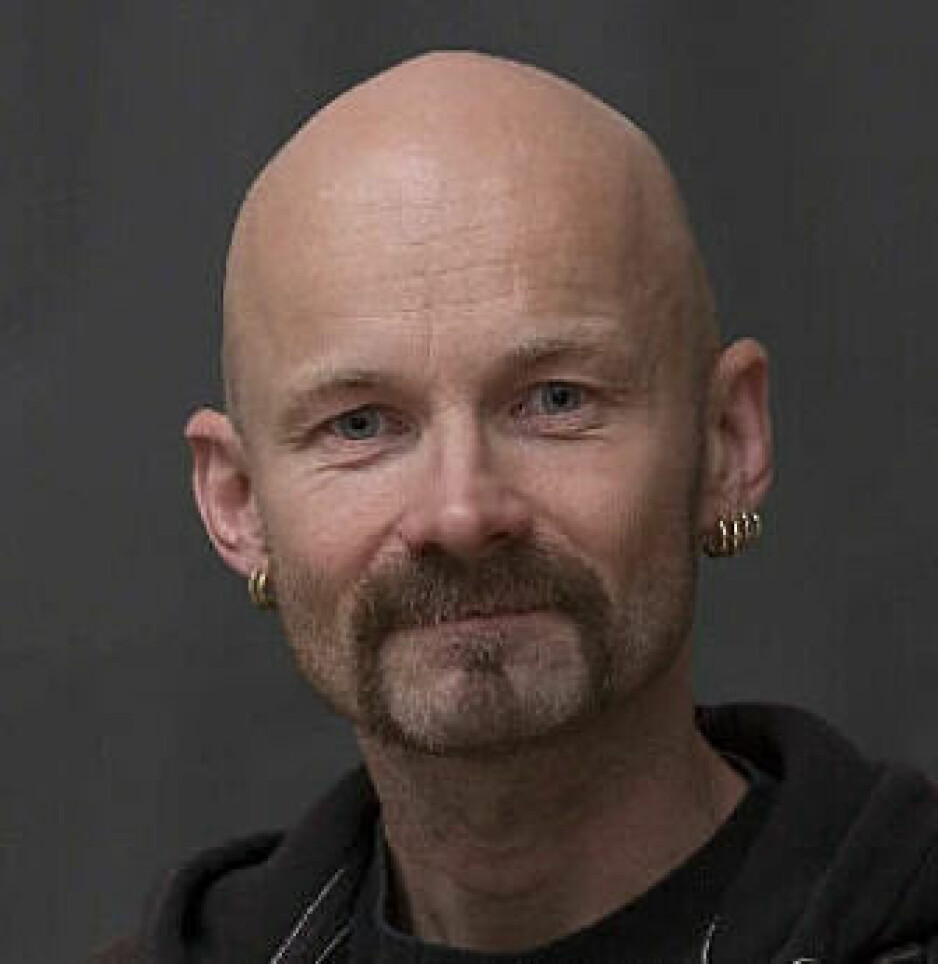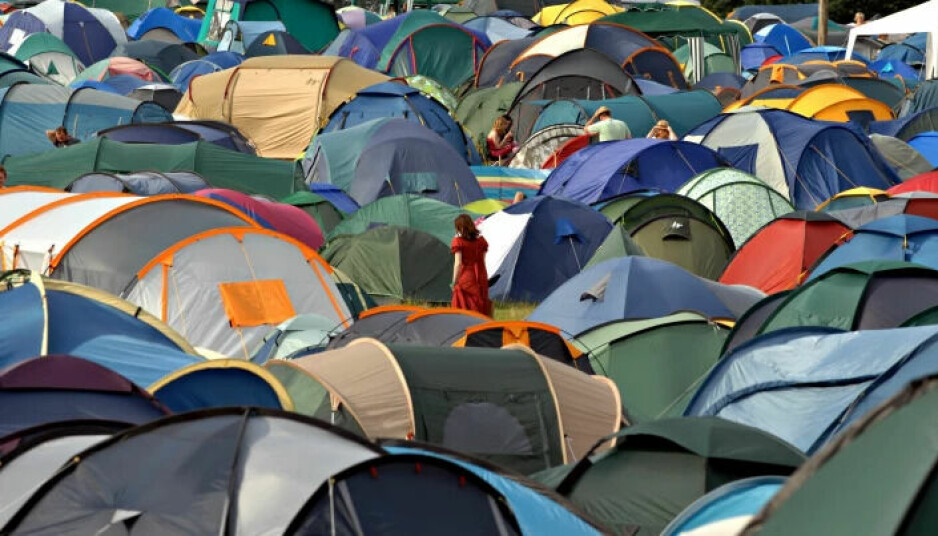
Why you should definitely go to a festival this summer
“Festival tickets should be available as free prescriptions,” Norwegian professor says.
You are standing in the middle of a cluster of people with a stage in front of you. You are one of many, but also part of something bigger. Music, people, food, and beer in perfect harmony.
You might think that the feeling of being a part of something bigger was limited to the specific cluster and the specific festival.
Now researchers believe they have proven that the group feeling lingers - long after the festival has ended.
Related to humanity
A research team from Yale University in the USA studied people's experiences and social behaviour both during and six months after a festival.
The majority of those who attended the festival reported so-called transformative experiences - both during and after the festival. Transformative experiences lead to changes in people.
The survey showed that those at the festival felt more connected to humanity and became more willing to help strangers, according to the article in the scientific journal Nature Communications.

Fieldwork at the festivals
The research team conducted field studies with more than 1,200 people at major festivals such as Burning Man, Burning Nest and Latitude in the USA and the UK.
To conduct the study, the researchers set up stands at the festivals. Passers-by were invited to play "a game for science". Those who agreed to participate were asked about their experiences at the festivals, their willingness to share resources with friends and strangers, and about empathy and solidarity.
63 per cent of the participants reported that they had transformative experiences related to the festivals.
The experiences were so deep that they felt radically changed and more socially connected to all people. For each day that passed at the festivals, participants’ generosity expanded. From family and friends to strangers.
They also found, perhaps unsurprisingly, that the transformative experiences were more intense amongst the 28 per cent of participants who said they had taken psychedelic drugs.
Important social research
The researchers then contacted the participants after six months. It turned out that the transformative experiences and their prosocial behavior - social behavior that is positive, constructive and helpful - had lasted.
Aksel Tjora is a professor at the Department of Sociology and Political Science at the Norwegian University of Science and Technology, NTNU.
“This research shows that attending festivals has a lasting effect,” Tjora says.
He believes that this type of research is important.
“You may have a desire to develop societies where solidarity between known and unknown is an important value,” he says. “This type of research shows that festivals and cultural events help to maintain the degree of solidarity, generosity and trust in society.”
He says that the goal of creating good societies is in everyone's interest.
“Research should be conducted to achieve this. And then we must decide how it should be prioritised both economically and politically,” Tjora says.
Do festivals create better people?
Tjora has previously been asked if you can become a better person by going to festivals.

“I believe so. And I think this study confirms that. If being a good person is about having prosocial behaviour”, he says.
“How do you think the world would look if everyone had an annual festival experience?”
“I think it would be a better world. If we are to follow up on these findings, we could offer festival experiences as free prescriptions. That way you could get people together regardless of finances and social background,” says Tjora.
Festivals offer something very special
Would a huge party in your backyard with strangers achieve the same transformative experiences?
“Not in the same way. Many of us are wary of socialising with many strangers. We need something to focus our attention on, and at a festival, there is at least something happening onstage,” he says.
Just by standing next to each other, you suddenly have something in common. You are there because of what is happening onstage.
Tjora calls it an interaction pretext.
“You have a reason to talk to the person who happens to be standing next to you,” he says.
He says that sporting events can offer the same.
“Those at the match are looking at and experiencing the same things at the same time. Everyone has something in common, and so the carpenter talks to the real estate agent,” he says.
This might be harder at a party in a backyard filled with strangers.
“You have to give people something to talk about. Especially if they do not know each other. However, it doesn’t have to be anything expensive. You can, for example, arrange a quiz or a potato race,” he says.

Alcohol, drugs and research
Tjora points out that several of the participants in the study were under the influence of alcohol and drugs.
“The researchers behind the article have tried to control for it, but at the same time some of the festival experience is often also tangled with drugs or alcohol. In a Norwegian context, often as a beer in hand,” says Tjora.
He also highlights how the researchers have engaged participants who have already chosen to go to a festival. Tjora says that this is an obvious weakness of the study.
“It's possible that some of these people are more open and social in the first place. It may also be that they are more receptive and thus more easily triggered by festival experiences,” says Tjora.
Is it life-changing?
The researchers behind the Yale University-study claim that you are affected by the festival for at least six months. Tjora believes the effect may last even longer.
“The festival experience and the feeling of connection to other people can make the ball roll. If you later meet new people and continue to have positive experiences, there is no reason for this to stop,” he says.
You may feel that it is rewarding, and therefore an experience you want to repeat. Tjora says that festivals are an excellent platform to get people talking. It can be just as important for conversations between the tents.
“The festival organisers tear their hair out when people talk during performances, but people often attend festivals because of the social aspect,” he says.
Tjora has studied festivalgoers who have hardly seen a single performance. They sit and talk in the beer tent.
“The festival program is an opportunity to gather, but once you are in place, the conversations with other people become more interesting,” he says.
———
Translated by Alette Bjordal Gjellesvik.
Read the Norwegian version of this article on forskning.no
References:
Tjora et al. The collective effervescence of the music festival, Tidsskrift for samfunnsforskning, 2017 Doi.org/10.18261/issn.1504-291X-2017-01-03 Abstract.
Yudkin et al. Prosocial correlates of transformative experiences at secular multi-day mass gatherings, Nature Communications, 2022. Doi.org/10.1038/s41467-022-29600-1
































